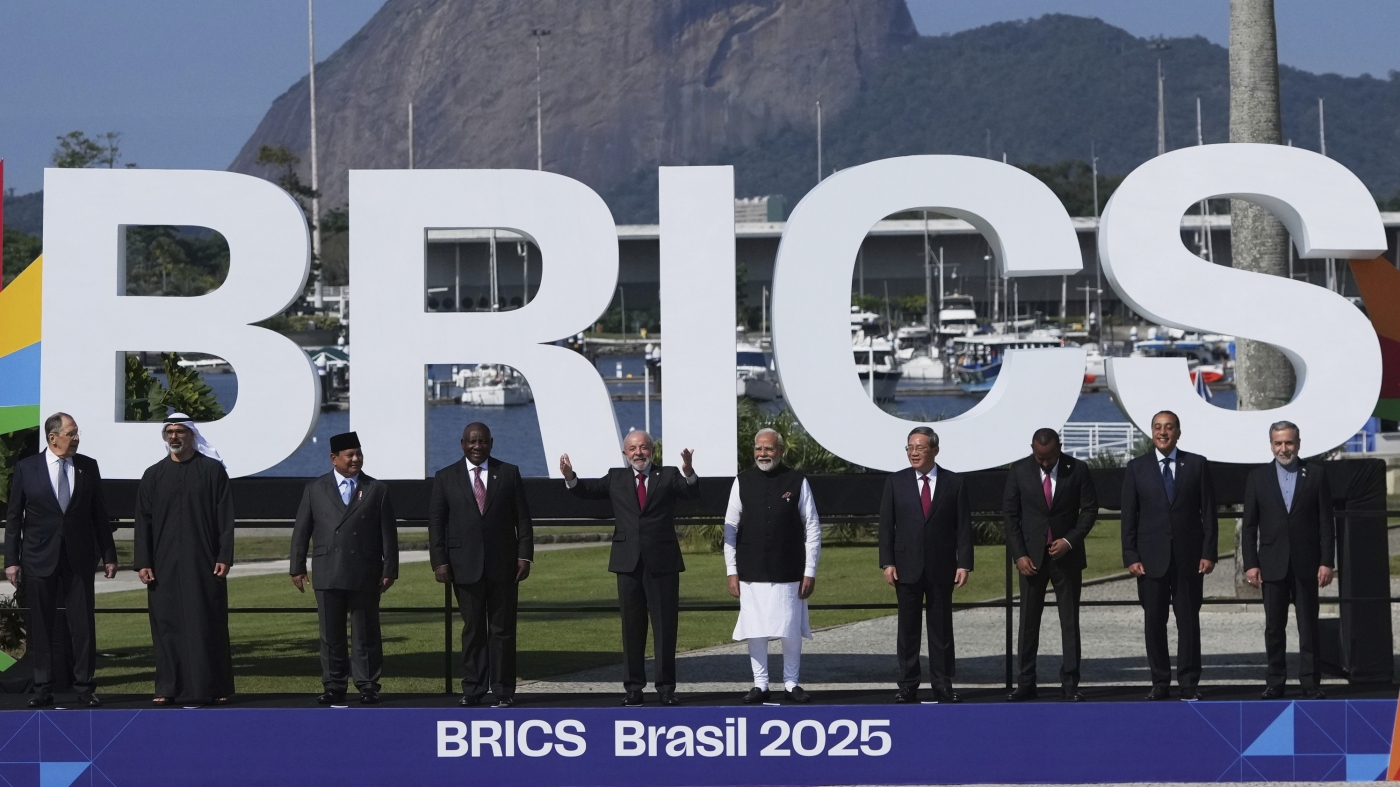ARI SHAPIRO, HOST:
The president of Brazil says his fellow leaders of major emerging economies have just wrapped up their most important BRICS summit yet, today in Rio de Janeiro. The BRICS group of nations is seen as a rising counterweight to Western powers like the U.S. It tried to avoid confrontation with President Donald Trump by issuing a low-key joint statement from its meeting, but Trump threatened new tariffs on BRICS countries anyway. He accused them of pushing, quote, “anti-American policies.” From Rio, NPR’s Carrie Kahn reports.
CARRIE KAHN, BYLINE: It’s been raining during most of the two-day BRICS conference, which was billed as a celebration of the Global South unity and clout in a troubled world. But by the end of the summit, President Luiz Inacio Lula da Silva’s mood also turned gray.
(SOUNDBITE OF ARCHIVED RECORDING)
PRESIDENT LUIZ INACIO LULA DA SILVA: (Speaking Portuguese).
KAHN: “No, no, we don’t want emperors. We are sovereign nations,” said Lula. This followed Trump’s threat to slap an additional 10% tariff on BRICS countries that align with what Trump calls the group’s anti-American policies.
(SOUNDBITE OF ARCHIVED RECORDING)
LULA: (Speaking Portuguese).
KAHN: “I don’t think it’s very responsible of a president of a country the size of the U.S. to be threatening the world via the internet. It’s not right,” said Lula. Trump also posted support for Lula’s chief political rival Jair Bolsonaro today. The former Brazilian president is facing trial for trying to overturn his 2022 reelection loss and stay in power. Lula declined comment on that Trump posting.
Despite the rhetorical finale, BRICS’ declaration was toned down, with no direct criticism of Trump or the U.S., says Oliver Stuenkel of Brazil’s FGV University.
OLIVER STUENKEL: This was a fairly tame summit.
KAHN: Well, at least that was the intention of BRICS diplomats and leaders, says Stuenkel.
STUENKEL: They probably believed that they could fly below the radar of Trump as long as they didn’t mention the United States, but that clearly failed.
KAHN: BRICS also tamed criticism of their own. Russia’s Vladimir Putin, who attended via video, was not called out for his invasion of Ukraine. And its newest member, Iran, was defended as a victim of Israeli airstrikes. Israel, by contrast, was mentioned more than a dozen times in the final declaration, blamed for the humanitarian crisis in Gaza and strikes in Syria and Lebanon.
BRICS member South Africa jumped into the Trump fray also. Its president said the powerful can’t seek vengeance against, quote, “those who are seeking to do good in the world.” China’s foreign ministry criticized using tariffs as a coercive tool. There had been worries that the BRICS group was losing relevance as it continued to expand beyond its original members. Consensus among divergent countries, now including Indonesia and several Middle Eastern nations, has been difficult. But Brazil’s Lula was undeterred, insisting that BRICS is not a club of the privileged.
(SOUNDBITE OF ARCHIVED RECORDING)
LULA: (Speaking Portuguese).
KAHN: “It’s a group of countries wanting to create another way,” he said, “with more focus on human relations and development, not confrontation.”
Carrie Kahn, NPR News, Rio de Janeiro.
Copyright © 2025 NPR. All rights reserved. Visit our website terms of use and permissions pages at www.npr.org for further information.
Accuracy and availability of NPR transcripts may vary. Transcript text may be revised to correct errors or match updates to audio. Audio on npr.org may be edited after its original broadcast or publication. The authoritative record of NPR’s programming is the audio record.
